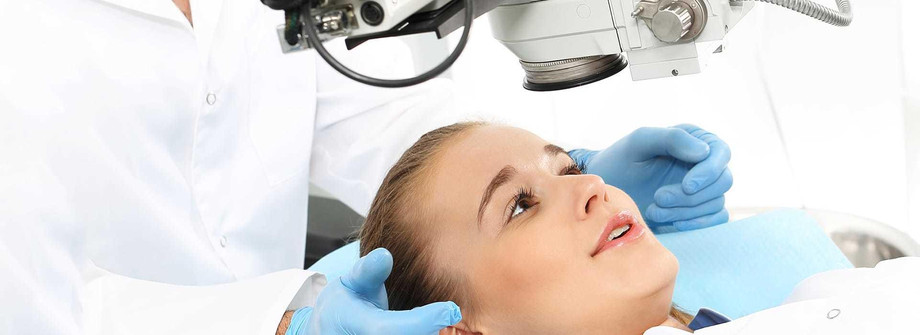Laser treatment for glaucoma, a progressive eye condition affecting millions worldwide, has emerged as a crucial intervention in preserving vision. Glaucoma involves damage to the optic nerve, often due to increased pressure within the eye. If left untreated, it can lead to irreversible vision loss. However, various laser therapies have revolutionized glaucoma management, offering effective options to alleviate pressure and slow down the disease's progression.
Understanding Glaucoma:
Glaucoma encompasses a group of eye conditions characterized by optic nerve damage, typically associated with elevated intraocular pressure (IOP). The optic nerve transmits visual information to the brain, and when it's impaired, vision loss can occur. The two primary types of glaucoma are open-angle and angle-closure, each requiring tailored treatment approaches.
Laser Treatment for Glaucoma:
Selective Laser Trabeculoplasty (SLT):
SLT is a non-invasive procedure that targets the drainage system of the eye, enhancing its function. It utilizes low-energy, short-pulsed laser light to stimulate the trabecular meshwork, facilitating better fluid drainage. This reduction in intraocular pressure helps preserve optic nerve health.
Laser Peripheral Iridotomy (LPI):
Typically used for angle-closure glaucoma, LPI involves creating a small hole in the iris using a laser. This opening allows the fluid to flow more freely within the eye, preventing sudden increases in pressure. It's a preventive measure to avert acute glaucoma attacks.
Laser Cyclophotocoagulation:
This procedure involves using a laser to decrease fluid production within the eye by targeting the ciliary body, which produces aqueous humor. By reducing fluid production, it helps in regulating intraocular pressure.
Advantages of Laser Treatment:
Minimally Invasive:
Laser procedures are often performed on an outpatient basis, requiring minimal downtime and reducing the risks associated with traditional surgery.
Precision and Control:
Lasers offer precise targeting, ensuring the affected areas are treated effectively while minimizing damage to surrounding tissues.
Reduced Dependency on Medication:
Successful laser treatment may reduce the need for glaucoma medications or lower their dosage, easing the burden of daily eye drops and potential side effects.
Effective Results:
Many patients experience lowered intraocular pressure and slowed disease progression post-laser treatment, preserving their vision.
Post-Treatment Considerations:
After undergoing laser treatment, patients are advised to attend regular follow-up appointments. These visits allow ophthalmologists to monitor progress, assess any changes in vision or pressure, and determine if additional treatment or adjustments are necessary.
For More Info:-
eye care center in Croton area
laser cataract surgery in Croton
laser treatment for glaucoma in Croton





Comments